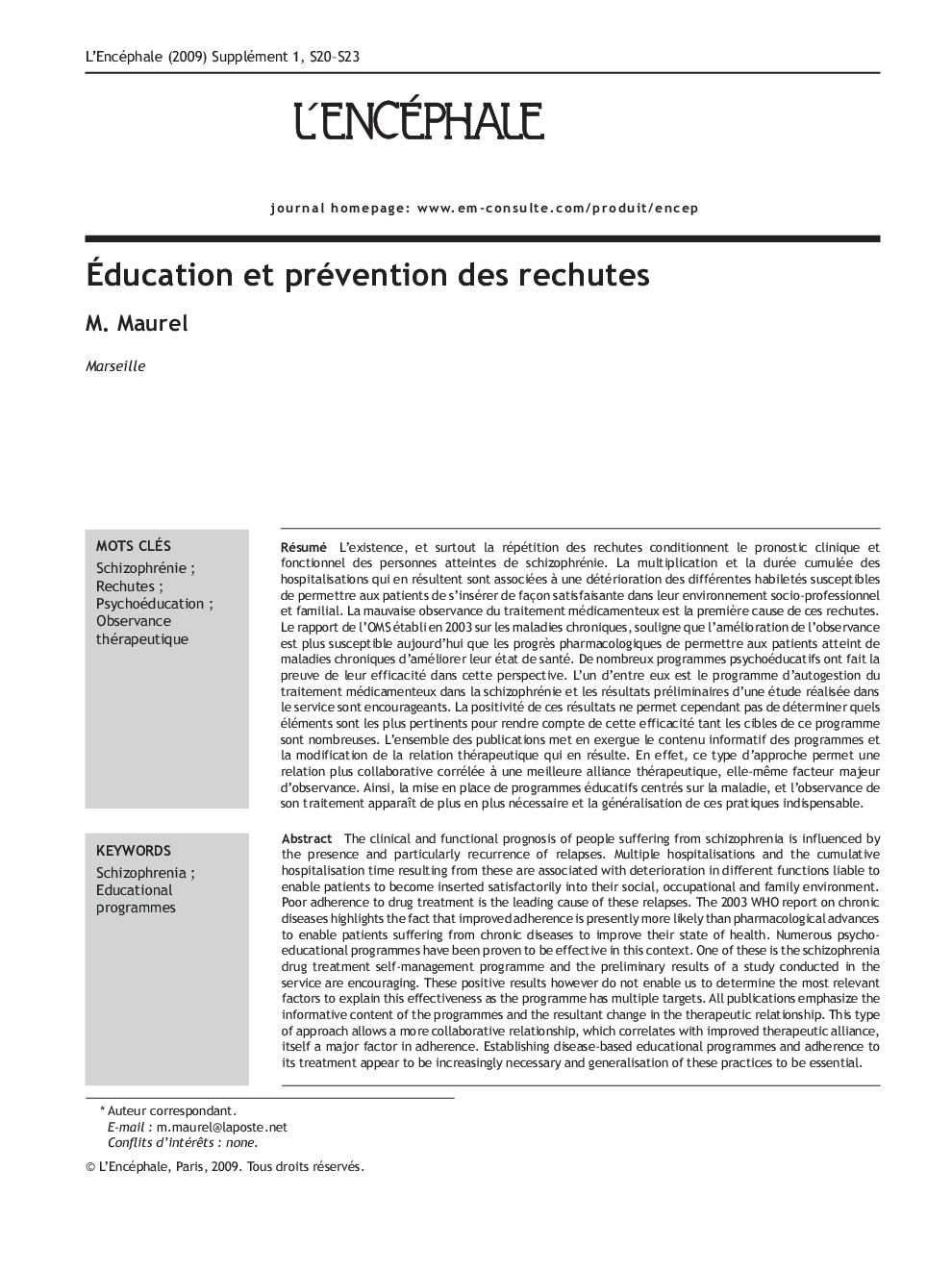| Article ID | Journal | Published Year | Pages | File Type |
|---|---|---|---|---|
| 4182526 | L'Encéphale | 2009 | 4 Pages |
Abstract
The clinical and functional prognosis of people suffering from schizophrenia is influenced by the presence and particularly recurrence of relapses. Multiple hospitalisations and the cumulative hospitalisation time resulting from these are associated with deterioration in different functions liable to enable patients to become inserted satisfactorily into their social, occupational and family environment. Poor adherence to drug treatment is the leading cause of these relapses. The 2003 WHO report on chronic diseases highlights the fact that improved adherence is presently more likely than pharmacological advances to enable patients suffering from chronic diseases to improve their state of health. Numerous psycho-educational programmes have been proven to be effective in this context. One of these is the schizophrenia drug treatment self-management programme and the preliminary results of a study conducted in the service are encouraging. These positive results however do not enable us to determine the most relevant factors to explain this effectiveness as the programme has multiple targets. All publications emphasize the informative content of the programmes and the resultant change in the therapeutic relationship. This type of approach allows a more collaborative relationship, which correlates with improved therapeutic alliance, itself a major factor in adherence. Establishing disease-based educational programmes and adherence to its treatment appear to be increasingly necessary and generalisation of these practices to be essential.
Keywords
Related Topics
Health Sciences
Medicine and Dentistry
Psychiatry and Mental Health
Authors
M. Maurel,
